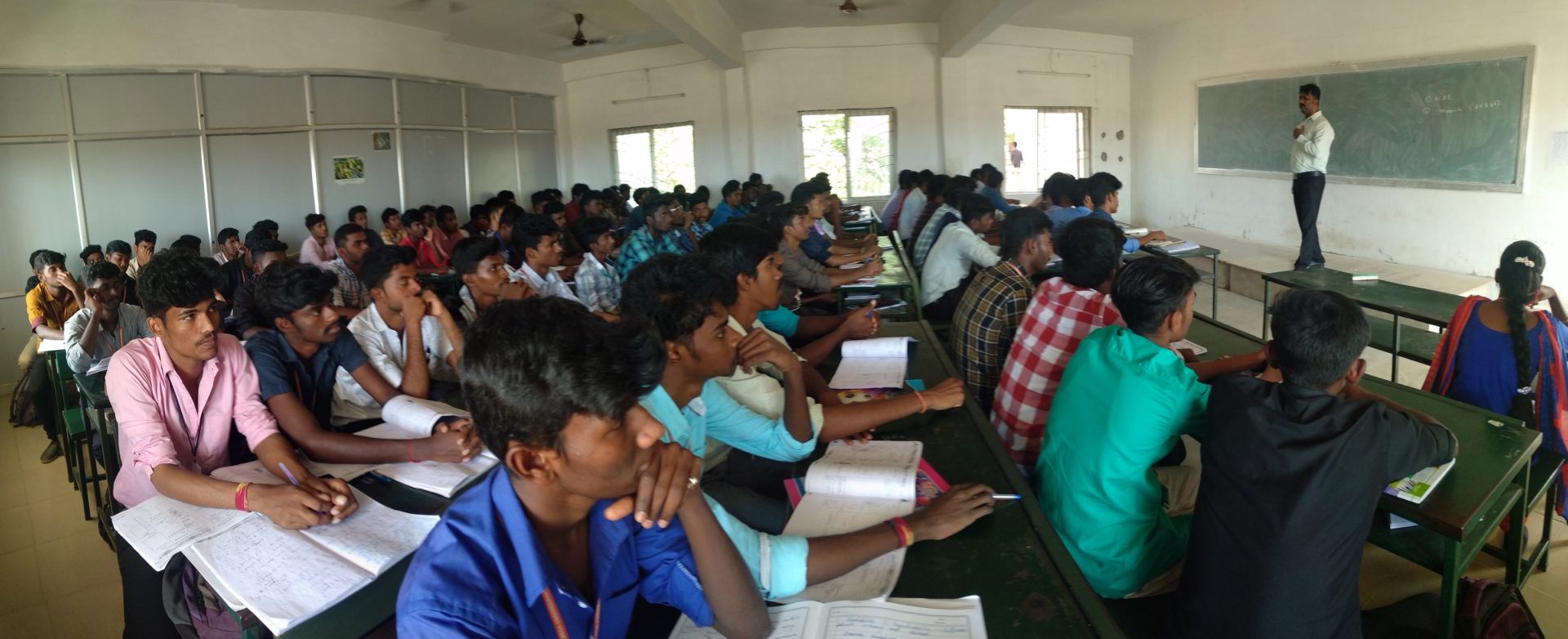Indian Higher education is in an advanced stage of chronic illness.
It will need very serious visionary thinking and political will to make a change. Even the well intended Right to Education Act is inadequate. A small example is the voice of an Engineering Student in his final year. ” I’m afraid of the Masters Education system in Developed Countries, because it is different from India. In our college Professors are not good enough to teach the subject properly, so they give xerox notes which will be just enough to score good marks. Labs are just for time pass. This leads to the lack of fundamental knowledge in core subjects during under graduation”.
The present system seriously needs to be revisited.
Professional courses especially in Engineering, Medicine, have devised a system to study for Exams rather than experiencing and imbibing from Professors. Simple explanation is the Educational institutions are run by politically motivated individuals rather than Educationists…
My heart bleeds at the majority of students who pass out with a good percentage but are unfit to be employed immediately..
Three broad issues affecting quality of education in India are the 3 A’s
Attendance, Access and Attainment
The system is designed to squeeze out students at each stage (secondary, higher secondary, under graduation, post graduation etc) simply because there are not enough seats available
Think about someone with a Bachelors degree; How often does this person manage to leverage what (s)he has learnt into a career? Even fresh engineers need to be retrained by their employers to make them ‘useful’.
Some voices from the Industry.. Almost 18% world population is India and innovation is almost zero . What is my budget for innovation? Every individual needs to think his contribution for nation building.
Parents invest their life time earned money just to see their sons or daughters getting degree in engineering. They think that jobs are easily available for engineers. After interviewing many of them , I can’t even tell them that your son or daughter do not even have minimum required technical knowledge. Getting first class or distinction has become so easy without having fundamental knowledge of engineering. It’s high time for parents to stop running behind engineering degrees. HR L & T

Key Issues in improving Quality of higher education in India
- Poor quality of intake: In order to attract students for admission, the colleges go on awarding high grades/marks to undeserving candidates. The colleges/university departments admitting students on the basis of career marks get cheated in many situations and thus get poor quality of students.
- Difficulties in recruitment and retention of qualified teachers in critical areas. Poor standards of academic research..
- Overcrowded Classrooms: lack of adequate number of teachers and classrooms force many colleges to reduce their number of groups and merge them into larger groups making it possible for a teacher to carry out effective classroom interaction.
- Non- accountability of institutions: Non-accountability of the institutions leads to the poor quality in higher education.
- Inefficiency in Teaching: An effective teacher needs to be lifelong learner and need to strengthen his knowledge voluntarily. A good institution is known by its teachers. The institution should be supplied with various journals and good library facility which will energize the teachers’ proficiency and competency.
- The Problem of Quality World Bank-FICCI Survey: 64 percent employers not satisfied with engineering graduates at some level
- Infosys finds only 2 percent of 1.3 million job applicants acceptable .
- Not enough talent goes into teaching and scholarship. Colleges reduced to rule-bound bureaucracies
- Profit-seeking businesses cannot produce public goods for society. Difficulty of running universities by civil service processes because learning, scholarship, and teaching do not lend themselves to bureaucratic control and performance measurement. India’s reputation built on a few lakh graduates of elite colleges that shine mostly by their screening function.
Shishir Mandya
Editors Note : It can be concluded that education is the key to the progress especially higher education which provides the cutting edge and skilled manpower. India cannot progress until it higher education system is qualitatively strong enough because this poor quality is resulting in low employability, low performance of the specialized individuals, lack of innovative and creative ideas etc. which are the key elements of success and progress in present time. In all, there is a need to enlarge the adaptive capacity and quality of the higher education system so that it is more responsive to the changing world of work and meets the diversified needs of economy – both domestic and global. Diversification of the Indian higher education and training system has to be pursued as a goal. This can be achieved by having a proper mix of public and private, formal and non-formal institutions.
Special initiatives are required to enhance employability. Curriculum and content has to be continually renewed through Teaching and Learning Support Networks and specific skill development network may be set up.
India’s economy calls for educating the annual cohort of 260 Million children To teach these 260 million students below the top layer per year, India needs real teachers, real colleges and real resources


